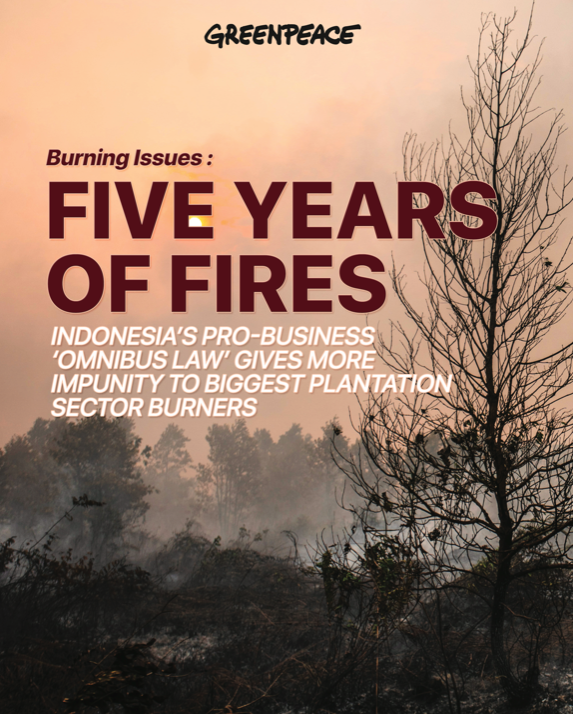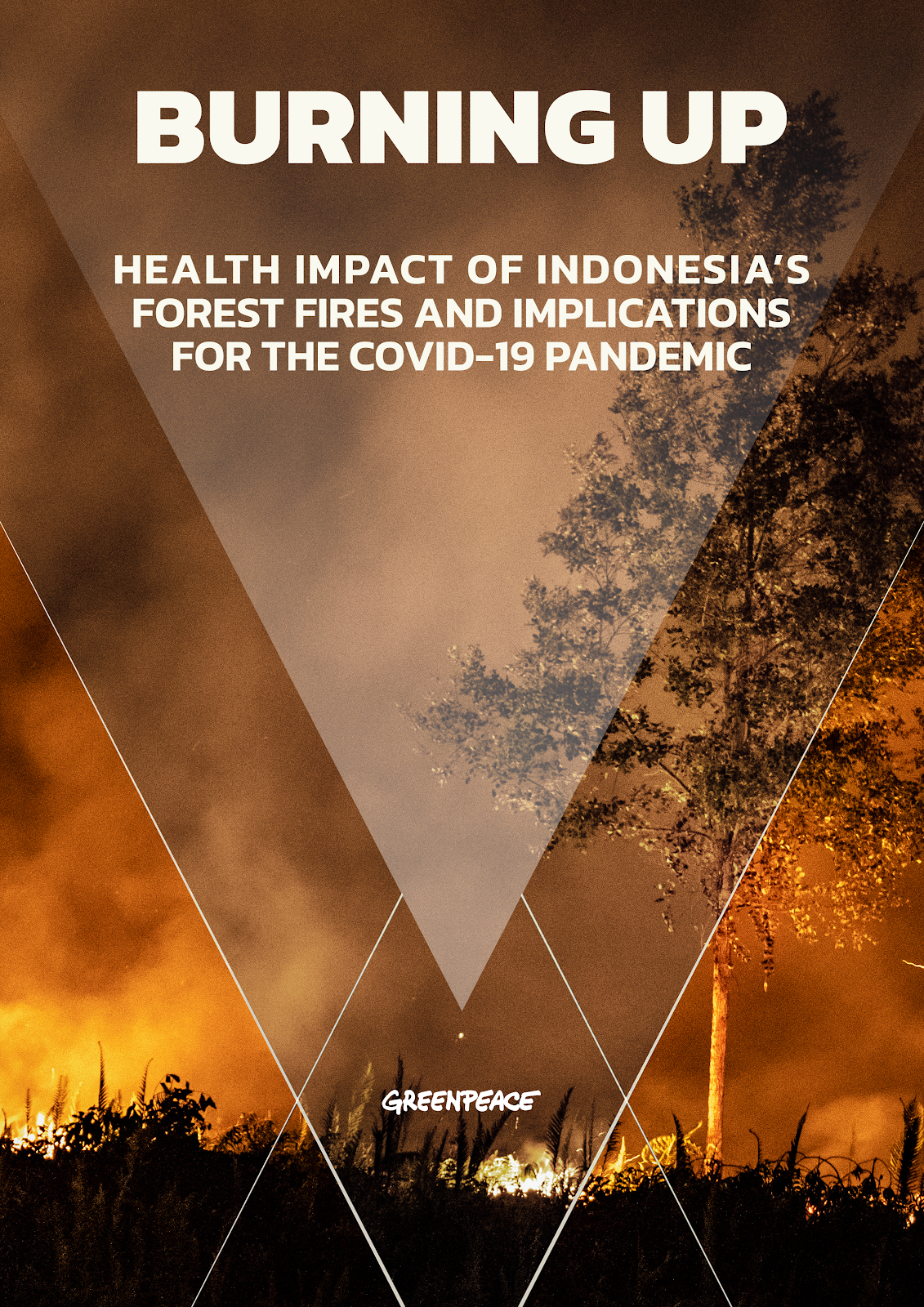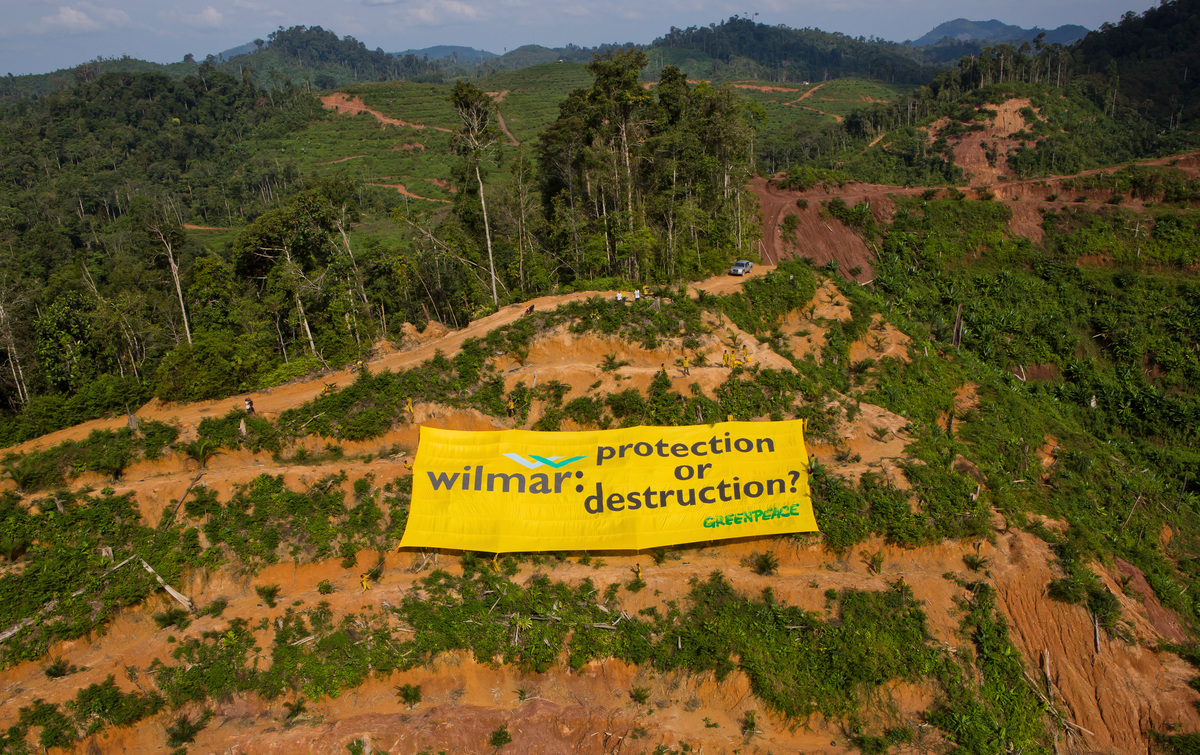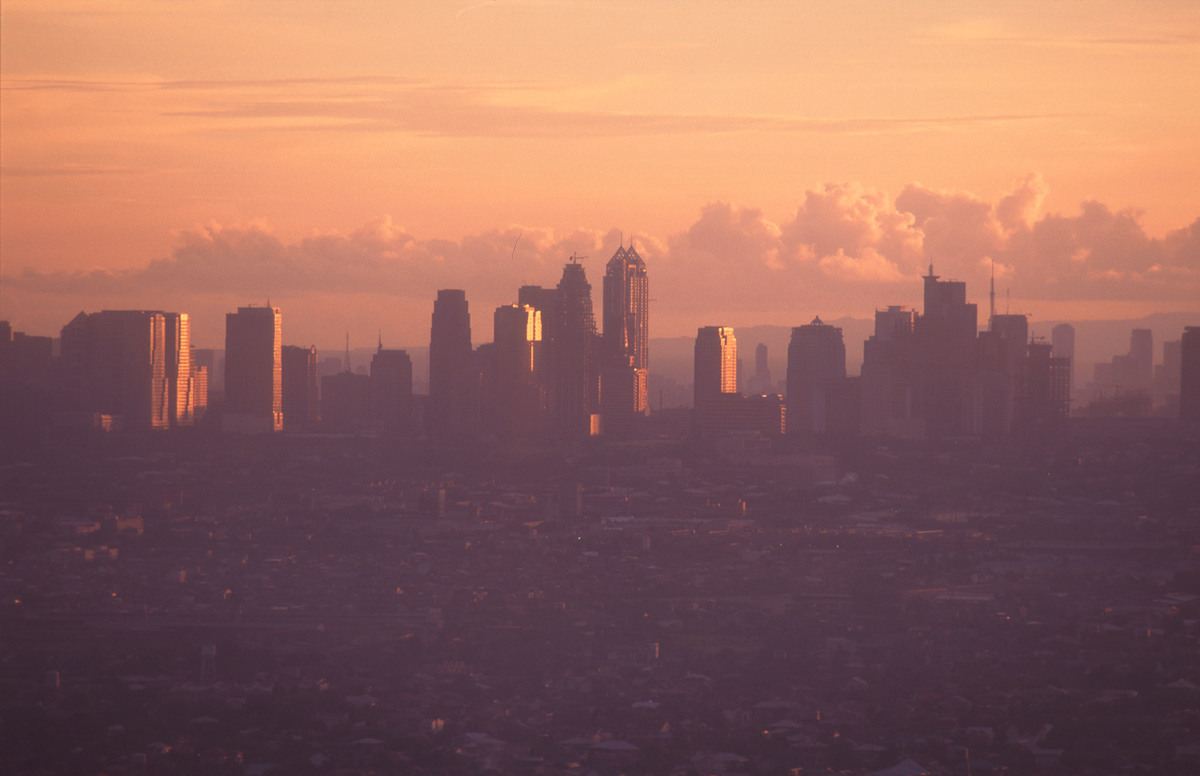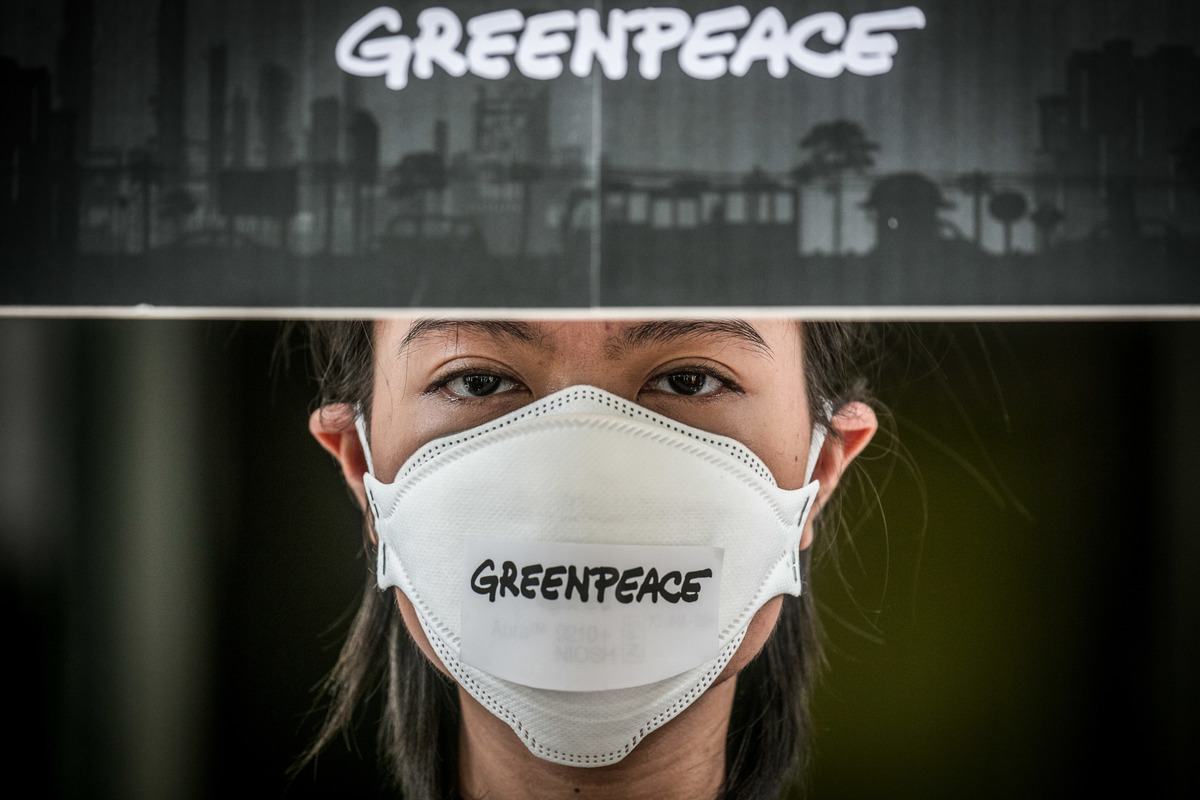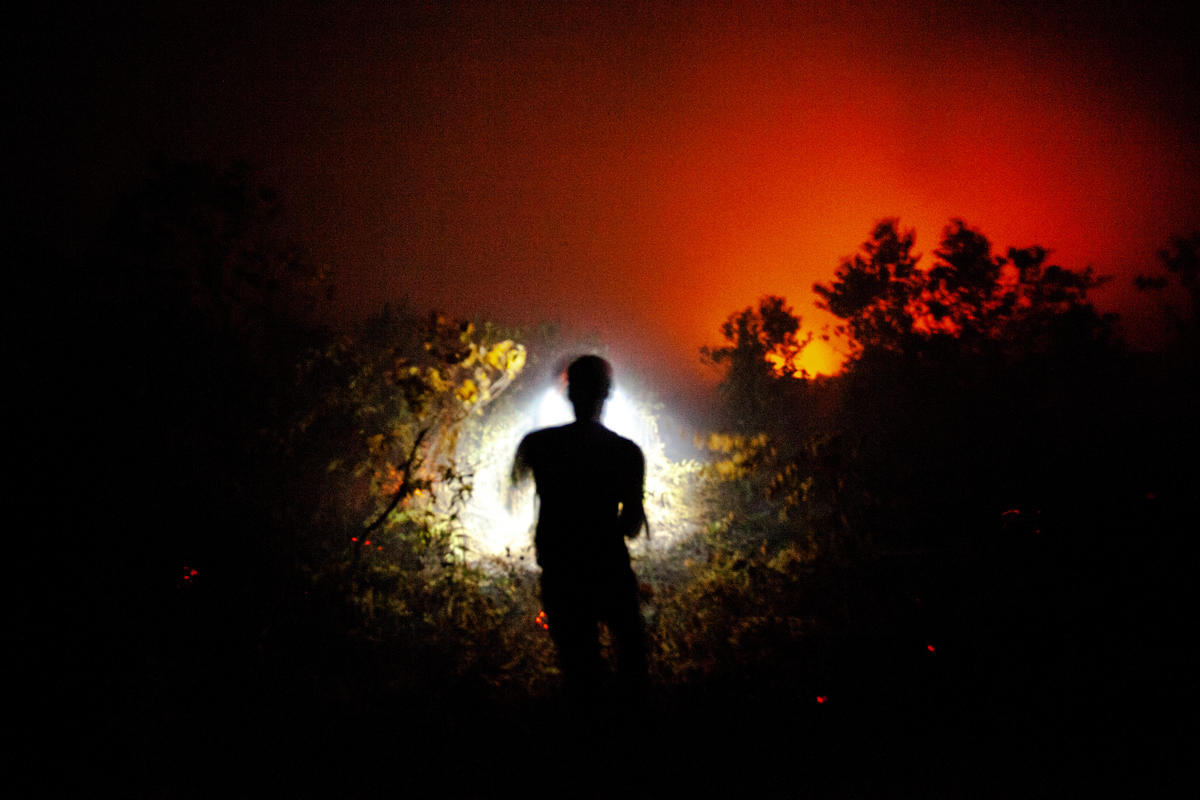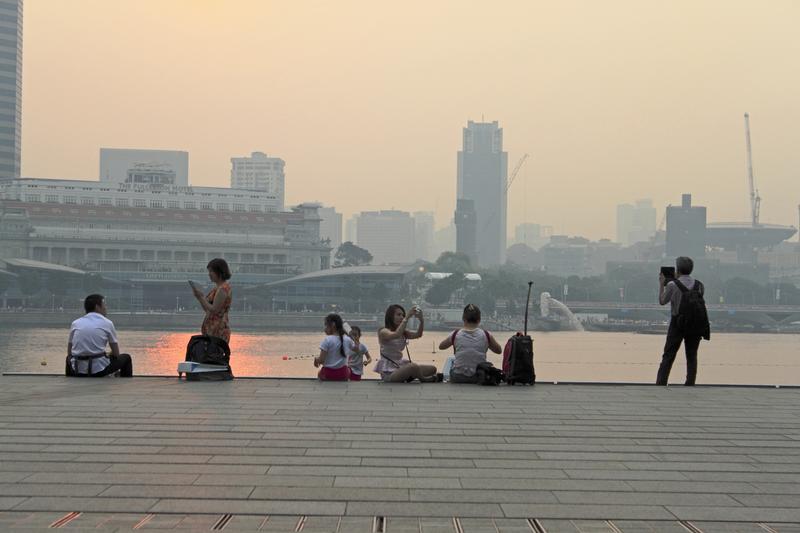All articles
-
Burning Issues: Five Years of Fire
The 2015 fire season in Indonesia was the worst in nearly two decades, with the blazes for almost a month emitting daily carbon emissions that exceeded those from the entire US economy.
-
Burning Up: Health Impact of Indonesia’s Forest Fires and Implications for the Covid-19 Pandemic
As Indonesia braces for the 2020 forest fire season, a timely review of data of the effect on smoke-affected communities shows consecutive governments have been consistently and massively underestimating the impact on human health.
-
Greenpeace finds Asia Pulp and Paper guilty of peatland clearance and fuelling forest fires in Indonesia
As the fire season looms in Indonesia, Greenpeace Southeast Asia revealed that Asia Pulp & Paper (APP), one of the world’s largest pulp and paper company, owned by the Sinar Mas Group, has been actively clearing Sumatran peatland for pulpwood plantations in direct breach of its own commitments to preserve and restore carbon-rich ecosystems and…
-
Greenpeace’s Response to Sime Darby Announcement to Exit from the HCSA Steering Committee
In response to Sime Darby announcement to exit from the HCSA steering committee, Grant Rosoman Global Forest Solutions Coordinator for Greenpeace International said:
-
Maize, Land Use Change, and Transboundary Haze Pollution
Both the PM2.5 and transboundary haze pollution are directly related to the growth of monoculture agriculture in Thailand and in the neighboring countries. There is evidence that maize pricing varies with the number of fire hotspots. When there is a high demand for maize, there is also a higher number of hotspots.
-
Wilmar International’s exit from the High Carbon Stock Approach marks its failure to end deforestation
Wilmar International, the world’s largest palm oil trader, has taken a further backward step in implementing its commitment to removing deforestation from its commodity supply chains by resigning from the High Carbon Stock Approach (HCSA) the most credible and widely supported mechanism by which to identify and protect forested areas in plantation company concession areas.
-
Air pollution a silent killer: Green groups call on govt to take immediate steps to improve air quality in the country
The recent 2019 Air Visual report places the Philippines in the 58th spot out of 98 countries with locations from where air quality data was collected. But the groups emphasize that while available Air Visual data did not place the Philippines as among the countries with the worst air quality, the data nevertheless shows that…
-
Here’s how people power is tackling air pollution
We are in a public health emergency. An estimated 4.5 million people around the world die each year from causes directly attributable to air pollution from burning fossil fuels a recent study shows. Meanwhile, the leading contributors to air pollution – coal, oil, and car companies – are profiting while we pay the price with…
-
There is no smoke without fire
The fires blazing in Indonesia, that have placed nearly 10 million children at risk, are linked to companies widely considered to be “sustainability leaders” in palm oil. Greenpeace International’s research found that Unilever, Mondelez, Nestle, and P&G are each linked to nearly 10,000 fire hotspots in 2019 alone.
-
A haze-free ASEAN by 2020 – are we there yet?
This year, the plummeting air quality in Southeast Asia, caused by forest fires in parts of Indonesia and the Mekong Sub-Region, has raised questions on the effectiveness of an ASEAN agreement to prevent haze pollution.

